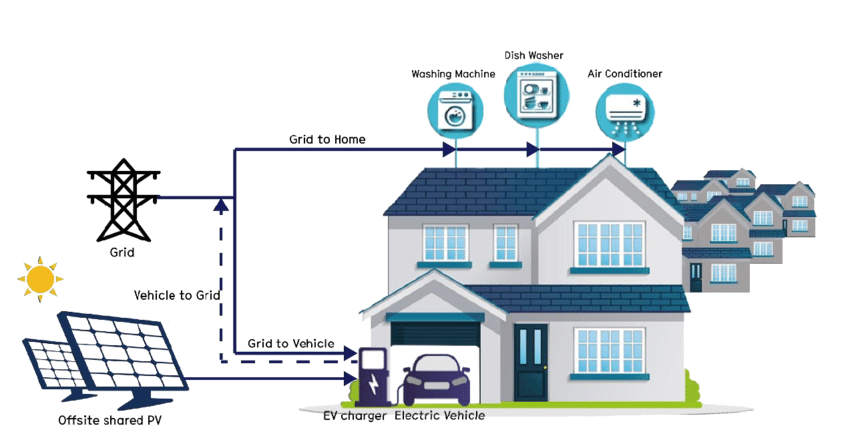Empowering Homes with Residential Energy Systems
Introduction
Residential energy systems are revolutionizing the way homeowners manage and consume energy. These innovative systems combine renewable energy sources, energy storage solutions, and smart technology to create efficient and sustainable power networks within homes. and in this article, we will explore the benefits of residential energy systems, their components, and their role in achieving energy independence.

Renewable Energy Integration:
Residential energy system integrate seamlessly with renewable energy sources like solar panels. By harnessing the power of the sun, homeowners can generate clean and sustainable electricity. This reduces reliance on traditional fossil fuel-based energy, leading to lower carbon emissions and a greener future.
Energy Storage Solutions:
Energy storage is a vital component of residential energy systems. Batteries, such as lithium-ion or lead-acid batteries, store excess energy generated during periods of high production for later use. This ensures a continuous power supply during cloudy days or nighttime, allowing homeowners to maximize their renewable energy utilization and reduce dependence on the grid.
Energy Efficiency and Cost Savings:
Residential energy system optimizes energy usage within the home. and Smart energy management systems monitor and control energy consumption, maximizing efficiency and reducing wastage. By utilizing renewable energy and minimizing reliance on the grid. Homeowners can significantly reduce their energy bills and achieve long-term cost savings.
Grid Independence and Backup Power:
Residential energy system provides homeowners with greater energy independence. so During power outages or emergencies, energy stored in batteries can serve as a reliable backup power source, ensuring uninterrupted electricity supply for essential appliances and critical systems.
Environmental Impact and Sustainability:
By adopting home energy system, homeowners actively contribute to environmental sustainability. The use of renewable energy sources and energy storage solutions reduces reliance on fossil fuels, lowers greenhouse gas emissions, and helps combat climate change. It is a step towards creating a cleaner and more sustainable future for generations to come.
Conclusion:
Home energy systems empower homeowners to take control of their energy consumption and embrace a more sustainable lifestyle. With renewable energy integration, energy storage solutions, improved energy efficiency, and reduced dependence on the grid, these systems offer numerous benefits, including cost savings, energy independence, and environmental impact. By investing in residential energy systems, homeowners can create a more sustainable and efficient energy ecosystem within their homes while contributing to a greener planet.

